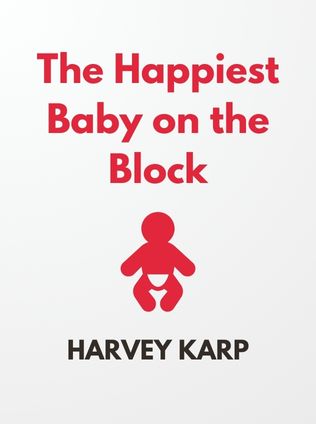
The Happiest Baby on the Block
The New Way to Calm Crying and Help Your Newborn Baby Sleep Longer
By Harvey Karp
Published 05/2002
About the Author
Dr. Harvey Karp is a renowned pediatrician, child development specialist, and a prominent advocate for early childhood well-being. With decades of experience in pediatric care, Dr. Karp has dedicated his career to understanding the nuances of infant behavior and development. His expertise extends beyond the clinical setting as he is also a prolific author and speaker, offering parents practical tools and strategies to navigate the challenges of early parenthood. Dr. Karp's passion for helping parents create a nurturing environment for their children has led him to develop innovative methods that have revolutionized the way parents approach infant care. His groundbreaking techniques, particularly those presented in The Happiest Baby on the Block, have earned him widespread recognition and trust among parents and professionals alike.
Main Idea
The central premise of The Happiest Baby on the Block is that colic—defined as excessive crying in otherwise healthy babies—can be effectively managed by understanding and replicating the comforting environment of the womb. Dr. Karp posits that many newborns experience what he calls the "fourth trimester," a period during the first three months of life when they are still adjusting to the outside world. During this time, babies are particularly vulnerable to overstimulation or understimulation, which can lead to prolonged crying episodes. Dr. Karp introduces a set of techniques known as the "Five Ss"—Swaddling, Side/Stomach position, Shushing, Swinging, and Sucking—which are designed to mimic the sensations of the womb and activate a baby's innate calming reflex. Through these methods, parents can soothe their crying baby and help them transition more smoothly into life outside the womb.
Table of Contents
- The "Missing Fourth Trimester"
- The Five Ss: An In-Depth Analysis
- Understanding Overstimulation and Understimulation
- Addressing Underlying Medical Conditions
- The Role of Sleep in Managing Colic
- Conclusion: Empowering Parents Through Knowledge
The "Missing Fourth Trimester"
Dr. Karp introduces the concept of the "missing fourth trimester" to explain why newborns often seem unprepared for the world outside the womb. Unlike other mammals, human babies are born in a relatively underdeveloped state, particularly in terms of their nervous system. This immaturity makes them highly sensitive to the sensory overload of the outside world. In the womb, babies are accustomed to a consistent environment—steady warmth, gentle rocking motions, and the muffled sounds of their mother's heartbeat and bodily functions. When they are suddenly exposed to the varied and unpredictable stimuli of the outside world, it can be overwhelming, leading to frequent crying and discomfort.
Dr. Karp suggests that this early period of life can be seen as a continuation of gestation, where the baby still needs to be nurtured in a way that closely resembles the womb. He argues that understanding this need is key to addressing colic. By simulating the conditions of the womb through specific techniques, parents can help their babies feel secure and content, significantly reducing the frequency and intensity of crying episodes.
“Human babies are born too soon. If they had an extra trimester in the womb, they would be more capable of handling the world outside.” - Harvey Karp
The Five Ss: An In-Depth Analysis
Swaddling
Swaddling is the first of the Five Ss and is perhaps the most fundamental. It involves wrapping the baby snugly in a blanket to replicate the confined space of the womb. Dr. Karp explains that swaddling not only helps keep the baby warm but also restricts their movements, which can prevent the startle reflex—a sudden, jerky movement that can wake the baby and cause them to cry. Swaddling helps to create a sense of security and comfort, allowing the baby to relax.
Sign up for FREE and get access to 1,400+ books summaries.
You May Also Like
The Subtle Art of Not Giving a F*ck
A Counterintuitive Approach to Living a Good Life
By Mark MansonHow To Win Friends and Influence People
The All-Time Classic Manual Of People Skills
By Dale CarnegieFreakonomics
A Rogue Economist Explores the Hidden Side of Everything
By Steven D. Levitt and Stephen J. DubnerQuiet: The Power of Introverts
The Power of Introverts in a World That Can't Stop Talking
By Susan Cain



















